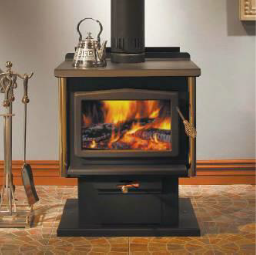DEP Reminds Public to Take Precautions When Burning Wood in Colder Weather to Help Protect Air Quality and Prevent Fires
FOR IMMEDIATE RELEASE December 30, 2019
Contact: Caryn Shinske (609) 984-1795 Lawrence Hajna (609) 292-2994
DEP REMINDS PUBLIC TO TAKE PRECAUTIONS WHEN BURNING WOOD IN COLDER WEATHER TO HELP PROTECT AIR QUALITY AND PREVENT FIRES
(19/P105) TRENTON – With colder weather upon us, residents are reminded to practice safety and help reduce the impacts burning of wood on air quality in their homes and neighborhoods, Department of Environmental Protection Commissioner Catherine R. McCabe announced today.
 “Wood burning in fireplaces, wood stoves, or outdoor wood boilers can help reduce energy costs, but it also emits small particles and other air pollutants,” Commissioner McCabe said. “Common-sense steps, however, can significantly reduce these effects and safeguard public health.”
“Wood burning in fireplaces, wood stoves, or outdoor wood boilers can help reduce energy costs, but it also emits small particles and other air pollutants,” Commissioner McCabe said. “Common-sense steps, however, can significantly reduce these effects and safeguard public health.”
Short-term exposure to wood smoke can aggravate lung or heart conditions for some people. Children, teenagers, older adults and people with lung diseases such as asthma and Chronic Obstructive Pulmonary Disease, or heart conditions are most susceptible to the effects of wood smoke.
Residents planning to burn wood as a major way to heat their home this winter may consider upgrading to a U.S. Environmental Protection Agency-certified wood stove or fireplace insert. The newer equipment will reduce air pollution and is much more energy efficient.
The DEP recommends the following guidelines for burning wood at home:
Residents should also be aware that state regulations and some municipal ordinances prohibit the emission of visible smoke from outdoor wood boilers.
Wood boilers heat a fluid that is circulated in homes and buildings for heating purposes. Under state regulations, these boilers may only emit visible smoke for three minutes every 30 minutes to allow for startup.
For more information on wood burning in New Jersey, visit www.nj.gov/dep/baqp/woodburning.html.
For more on the EPA’s Burnwise program, visit www.epa.gov/burnwise/.
Follow the DEP on Twitter @NewJerseyDEP.
###
PHOTOS/Top: DEP. Bottom: EPA
Legal Disclaimer:
EIN Presswire provides this news content "as is" without warranty of any kind. We do not accept any responsibility or liability for the accuracy, content, images, videos, licenses, completeness, legality, or reliability of the information contained in this article. If you have any complaints or copyright issues related to this article, kindly contact the author above.
